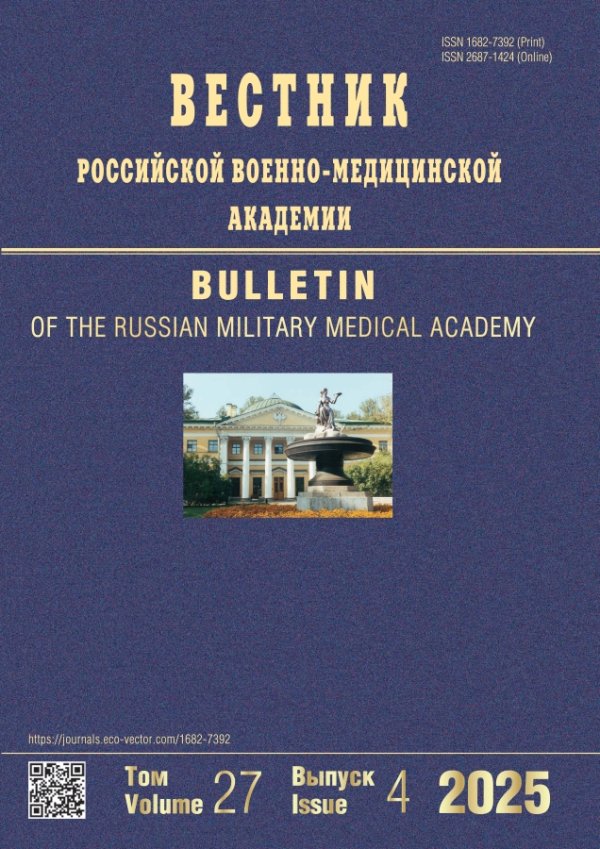Risks of health consequences of terrorist activity in Russia in 2011–2020
- Authors: Evdokimov V.I.1, Shulenin N.S.2
-
Affiliations:
- Nikiforov Russian Center of Emergency and Radiation Medicine, EMERCOM of Russia
- Kirov Military Medical Academy
- Issue: Vol 26, No 4 (2024)
- Pages: 607-616
- Section: Original Study Article
- URL: https://journals.rcsi.science/1682-7392/article/view/285209
- DOI: https://doi.org/10.17816/brmma630004
- ID: 285209
Cite item
Abstract
The indicators of the medical and sanitary consequences of terrorist acts in Russia are presented, indexed in the Global Terrorism Database by employees of the National Consortium for the Study of Terrorism and Response Measures, the Ministry of Emergency Situations of Russia and the Ministry of Health of Russia from 2011 to 2020. Individual risks of being exposed to terrorist acts, dying or being struck per 1 million people are calculated (10–6) of the Russian population. The average data and medians with upper and lower quartiles are presented. Compared with the global risks of terrorist activity in Russia, according to the National Consortium for the Study of Terrorism and Measures to Respond to it, the Ministry of Emergency Situations of Russia and the Ministry of Health of Russia belong to the category of “optimal”. At the same time, the polynomial trends of the analyzed risks at very high coefficients of determination demonstrate a clear decrease in data. The main purpose of terrorism is to destabilize the activities of government agencies and public organizations, to intimidate people, and not the health consequences. However, using the data of risk indicators for counter-terrorism measures, including for counter-terrorism medicine, it can be minimized. It is necessary to carry out more extensive interstate interaction between employees who take into account terrorist acts and their social, biomedical and economic consequences in Russia, with employees of the National Consortium for the Study of Terrorism and Measures to Respond to it and other international organizations. Objective accounting of indicators of terrorist activity makes it possible to identify temporal and spatial patterns, vulnerable groups and objects, as well as ways and means of attacks. This helps to develop targeted preventive measures and strategies to counter terrorist activity aimed at eliminating the identified causes and reducing the risk of terrorist acts.
Full Text
##article.viewOnOriginalSite##About the authors
Vladimir I. Evdokimov
Nikiforov Russian Center of Emergency and Radiation Medicine, EMERCOM of Russia
Author for correspondence.
Email: 9334616@mail.ru
ORCID iD: 0000-0002-0771-2102
SPIN-code: 1692-4593
MD, Dr. Sci. (Medicine), professor
Russian Federation, Saint PetersburgNikolay S. Shulenin
Kirov Military Medical Academy
Email: 9334616@mail.ru
ORCID iD: 0009-0008-4567-9279
SPIN-code: 3497-2982
MD, Cand. Sci. (Medicine), assistant professor
Russian Federation, Saint PetersburgReferences
- Rjazanov DS, Ohrimenko AV. Use of electronic data bases in investigation of terrorism. Manuskript. 2015;(11–2(61)):172–176. EDN: UMESVJ
- GTD Global Terrorism Database. Codebook: methodology inclusion criteria and variables. CollegePark: START; 2021. 63 p.
- Miller E, Wingenroth B. Global Terrorism Database: Real-time Data Collection Pilot Evaluation. CollegePark: START; 2023. 20 p.
- Besenyő J, Barten DG, De Cauwer HG, et al. Review of ambulance terrorism on the African continent. Prehosp Disaster Med. 2023;382(2):237–242. doi: 10.1017/S1049023X23000213
- Hoth P, Roth J, Bieler D, et al. Education and training as a key enabler of successful patient care in mass-casualty terrorist incidents. Eur J Trauma Emerg Surg. 2023;49(2):595–605. doi: 10.1007/s00068-023-02232-w
- Wirken B, Barten DG, De Cauwer H, et al. Primary care as primary target: a review of terrorist attacks against primary care providers and their offices. Prehosp Disaster Med. 2022;37(4):451–454. doi: 10.1017/S1049023X22000954
- Evdokimov VI. Risk analysis in emergency situations in Russia in 2004–2013: monograph. Saint Petersburg: Polytechnic Service; 2015. 95 p. (In Russ.) EDN: UCAVRT
- Kholmatova KK, Grjibovski AM. Panel and trend studies in medicine and public health. Human Ecology. 2016;(10):57–63. EDN: WQSIDR doi: 10.33396/1728-0869-2016-9-57-64
- Evdokimov VI, Shulenin NS. Terrorism and its global biomedical consequences (2011 to 2020). Medicо-Biological and Socio-Psychological Problems of Safety in Emergency Situations. 2024;(1):14–33. doi: 10.25016/2541-7487-2024-0-1-14-33
Supplementary files











